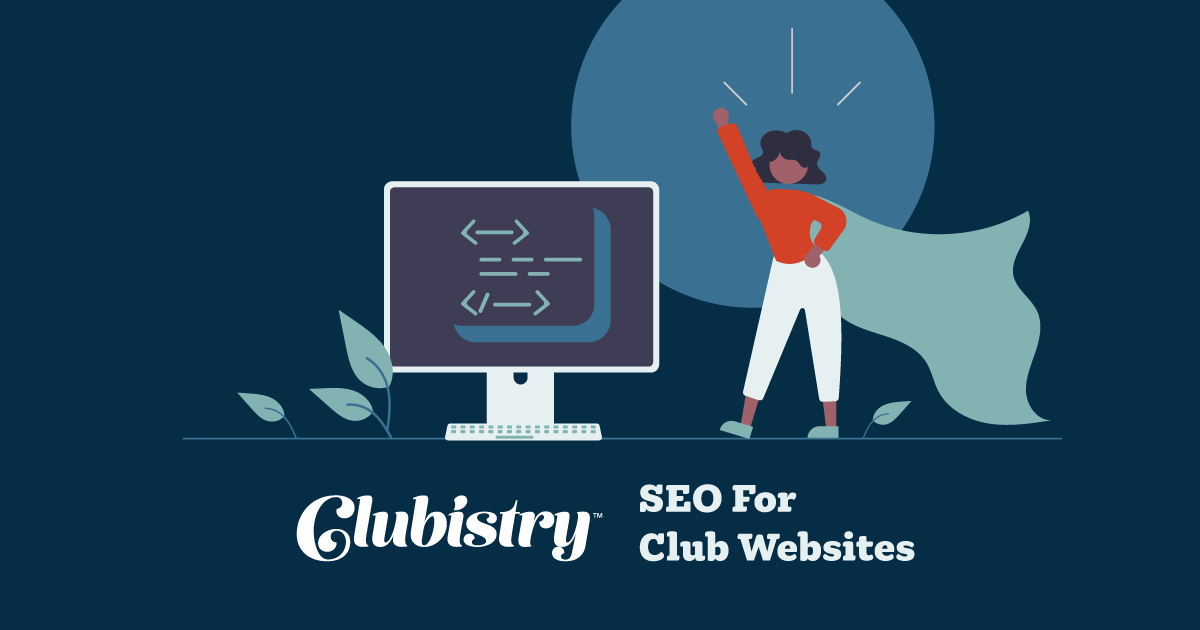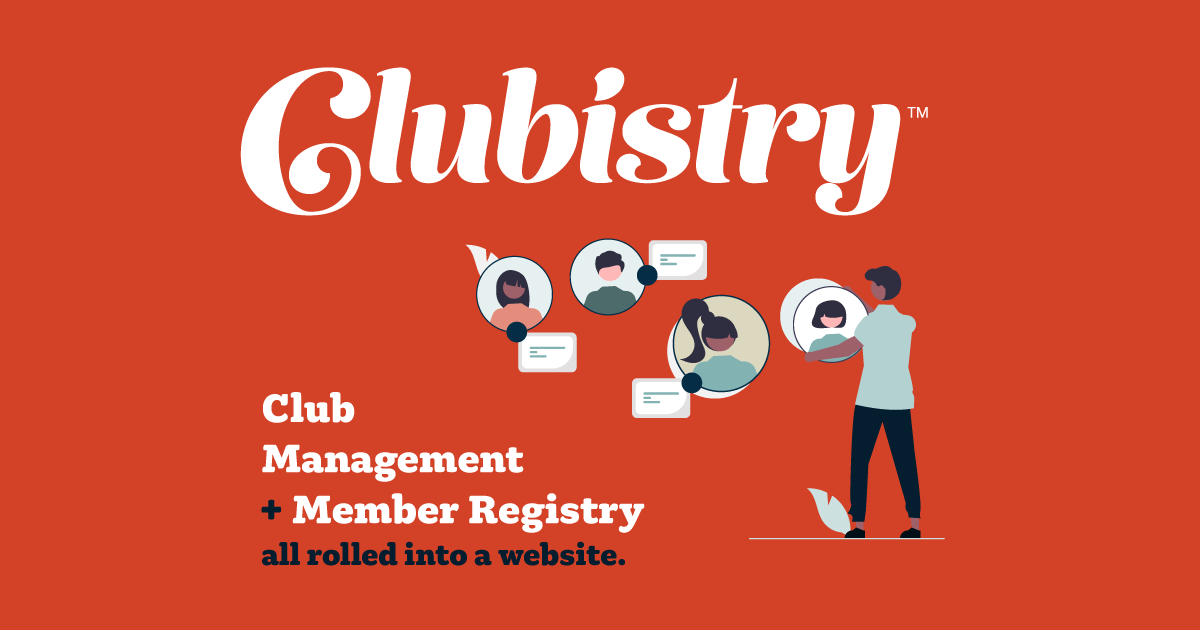Search Engine Optimization (SEO) in Your Clubistry Website
Part One: The Basics
12/29/2023

There’s a lot that goes into search engine optimization (SEO), and we’re going to break it down over a number of articles. This is Part One, in which we cover the basics provided in the Clubistry system to help you begin optimizing your website.
Optimizing any website for search engines can be a big task, and one that shifts continuously as the major search engines adjust what they’re looking for, and why. But the basics are pretty easy to handle as you build out a website.
In this article, we’re looking to help club website administrators understand some key details in your site that play a crucial role in ranking well.
Site vs. Page
The first thing to remember is that a search result nearly always points to one specific page on your site. Your club may have overall goals about how the site performs in general in searches, but you’ll need to individually optimize each page towards how you want that particular page to perform. Some pages on your site will be more important than others, and those will be the ones you invest the most effort into fine tuning over time. And having a good ranking for one or more pages on your site adds to the overall ranking of all pages on your site. The following basic items are the bare minimum that you’ll want to take care of for each page.
Additionally, it’s important to remember that search engines won’t be crawling or ranking the pages that are behind the login wall of your website. So while you still want to make sure you have appropriate information set up for your members-only pages, it’s not as critical to fine-tune these pages.
Keywords
While the meta keywords element in a web page is no longer used to evaluate page rank, it’s still important to know what your keywords ARE for your site. Keywords are the words that pertain to your organization that people would be searching for. Some are obvious, others less so. Your main topic words would obviously be important. But if your organization is local, or regional, your geographic information should also be included in your keywords. And they won’t be exactly the same for each page or section of your website. It’s important before you start optimizing your site to know what words you hope would help users find your site pages. You’ll want to use these keywords in some of the items below, as well as in your page content.
Page Title
This is not your headline on your page (though that’s important as well), but the title that’s coded into the page. It’s the text you see on your browser tabs, or if you bookmark a page, and it’s what shows up on search results as the title. It’s one of the most important pieces for SEO on your pages. When building a page in Clubistry, it’s the first field at the top of the page. You should work in appropriate keywords into your page title, as well as any relevant geographic information. The organization name is also important, so Clubistry adds that automatically. If your organization is Great Club of America, and you enter a title for your home page of “Welcome to the Great Club website, were all the experts come to share their knowledge”, then your page title will render as “Welcome to the Great Club website, were all the experts come to share their knowledge - Great Club of America”. Again, if your club is regional, then you might want to include the region or cities your club covers, at least for the home page’s title.
Meta Description
The description is evaluated by search engines as part of determining what the page is about, and is used by search engines on their results. It’s the text that appears below the title on the search results. Like your page title, you should use your appropriate keywords, and summarize or describe the content of the page. This should generally be 160 characters or less. Where the page title helps users know that they’re in the right place, the page description helps users looking at search engine results know a little about the information they should expect to find on that page. It’s also used similarly for some social media when a link to the page is shared.
Page Slug
The page slug is the part of the URL, or page address, that identifies the page. So in the URL “www.greatclub.com/join-great–club”, the page slug is “join-great-club”. Search engines like friendly page slugs! In Clubistry, your page slug will be automatically generated based on the page title, but you can override it with a custom value if you desire, especially if the page title is really long. Just remember that real words are helpful here. It’s easier for users to read them, and remember them. No spaces or special characters other than dash or underscore are allowed.
Social Media Image
If you spend any time at all in social media, you know that images and videos are very important. Social networks like Facebook and X / Twitter will use images from a page when you share links. Clubistry allows you to customize this by uploading an image to be included “behind the scenes” on the page, which some social media platforms will pick up and use when the page gets shared. You can also set a default social media image included in your Site Settings, which will be used for all pages that don’t get a custom one. If you don’t specify a social media image in one of these spots, social media platforms will simply grab whatever image they can find on the page—which may or may not be the right size, or an image you want used. While this isn’t strictly “search engine” optimization, optimizing for social media is also very important. Posts that format nicely on social media are much more likely to get users’ attention. Traffic from social media adds to your overall “weight” with search engines, thus helping to improve your page rank.
Mobile Optimization
More and more people than ever use smartphones and small screens to browse the web, which is why search engines now consider whether a site is mobile friendly as a large part of their page ranking. Sites that don’t function well (or at all!) on mobile devices will not rank well. Clubistry handles the mobile display for your site automatically, so you don’t have to worry. Your webpage content will automatically re-flow for smaller screens, making the site easy to use from mobile devices. We’ve got you covered!
Conclusion
The above items are the bare minimum you should work through for each public-facing page on your site, as well as each news article (since those render out as individual pages as well). Watch for the other articles in this SEO series in the coming weeks.
